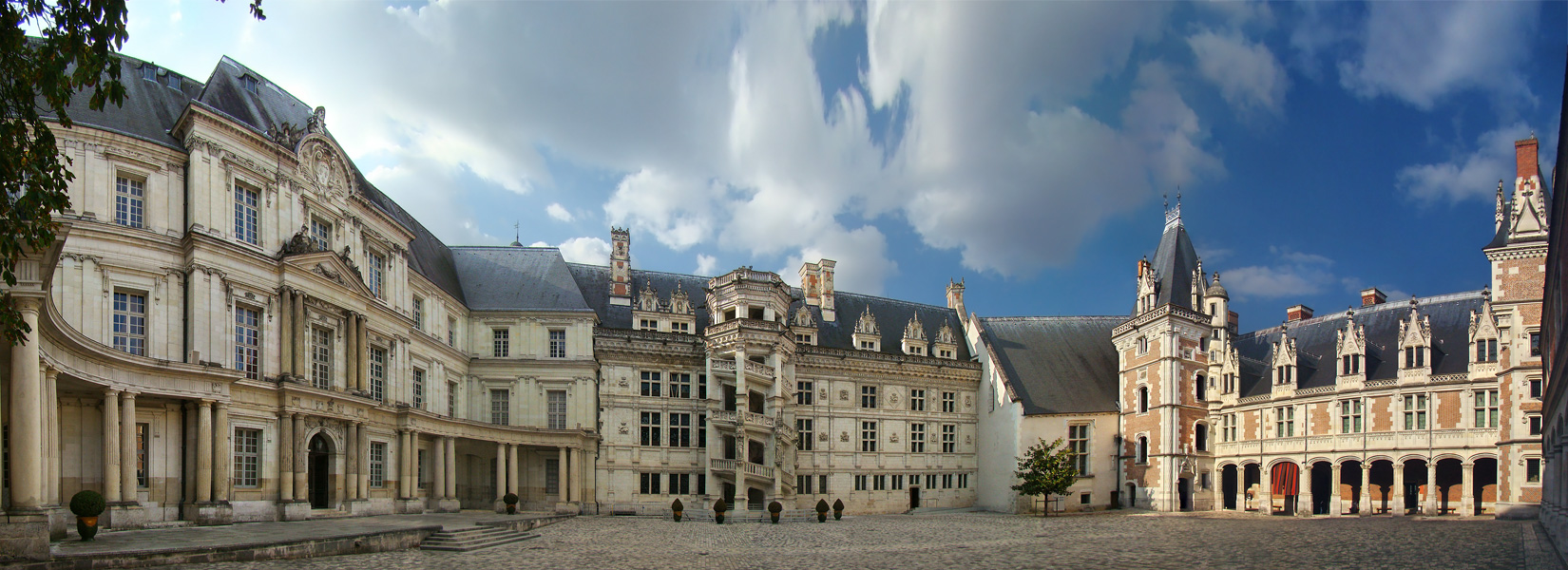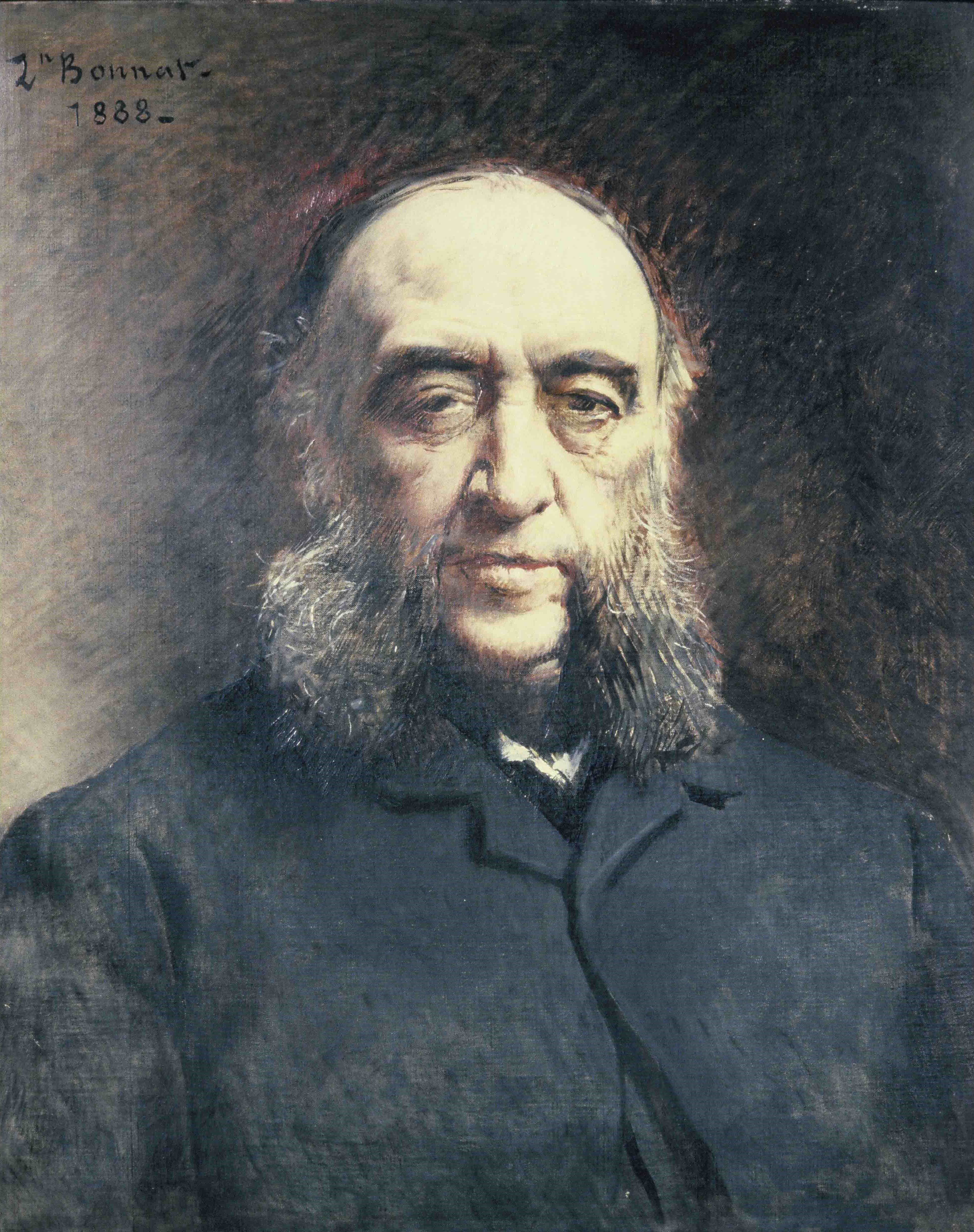|
Théodore Grandperret
Michel Etienne Anthelme Théodore Grandperret (26 January 1818 – 6 January 1890) was a French lawyer and politician. He was a staunch Bonapartist. He served briefly as Minister of Justice and Religious Affairs during the last weeks on the Second French Empire. Later he was a Life Senator from 1877 to his death. Early years (1818–1851) Théodore Grandperret was born in Caluire, Rhône, on 26 January 1818. His parents were Claude-Louis Grandperret (1791–1854), a teacher and school inspector, and Caroline Amélie Mollet (1793–1858). He studied Law in Paris and in 1844 joined the bar in Lyon. He became a laureate and then a member of the Académie de Lyon for his first essays on local history and literature. He contributed theatre reviews to the ''Courrier de Lyon'' and wrote for the ''Journal du Rhône'', directed by his father. In 1849 he became a magistrate as substitute for the Court of First Instance of Lyon. On 2 June 1851 Grandperret married Alexandrine Emanuelle F� ... [...More Info...] [...Related Items...] OR: [Wikipedia] [Google] [Baidu] |
Ministry Of Justice (France)
The Ministry of Justice () is a ministerial department of the Government of France, also known in French as . It is headed by the Minister of Justice, also known as the Keeper of the Seals, a member of the Council of Ministers. The ministry's headquarters are on Place Vendôme, Paris. Organization * Minister of Justice: The current Minister of Justice is Gérald Darmanin since December 2024. * The Judicial Services Directorate ( (known as DSJ) is responsible for the civil courts. The DSJ contributes to the drafting of texts and provides its opinion on laws being drafted and regulations that regards the courts. * The Civil Affairs and Seals Directorate ( (DACS) * The Criminal Matters and Pardons Directorate () (DACG) contributes to drafting criminal justice texts that lay down the rules for proceedings, judgment, and enforcement of rulings and oversees their application. * The Prison Administration Directorate a.k.a. French Prison Service ( (DAP, "Prisons Administration Direct ... [...More Info...] [...Related Items...] OR: [Wikipedia] [Google] [Baidu] |
Blois
Blois ( ; ) is a commune and the capital city of Loir-et-Cher Departments of France, department, in Centre-Val de Loire, France, on the banks of the lower Loire river between Orléans and Tours. With 45,898 inhabitants by 2019, Blois is the most populated city of the department, and the 4th of the region. Historically, the city was the capital of the County of Blois, created in 832 until its integration into the Royal domain in 1498, when Count Louis II of Orléans became Louis XII, King Louis XII of France. During the Renaissance, Blois was the official residence of the King of France. History Pre-history Since 2013, excavations have been conducted by French National Institute of Preventive Archaeological Research (''INRAP'' in French) in Blois-Vienne, Vienne where evidence was found of "one or more camps of Prehistory, Prehistoric hunter-gatherers, who also fished due to fishing traps found there. They were Neolithic farmer-herders, who were present in the area around 6,0 ... [...More Info...] [...Related Items...] OR: [Wikipedia] [Google] [Baidu] |
General Boulanger
Georges Ernest Jean-Marie Boulanger (29 April 1837 – 30 September 1891), nicknamed Général Revanche ("General Revenge"), was a French general and politician. An enormously popular public figure during the second decade of the Third Republic, he won multiple elections. At the zenith of his popularity in January 1889, he was feared to be powerful enough to establish himself as dictator. His base of support was the working-class districts of Paris and other cities, plus rural traditionalist Catholics and royalists. He introduced an obsessive and almost pathological anti-German sentiment, known as revanchism, which demanded the complete destruction of Imperial Germany as vengeance for the defeat and fall of the Second French Empire during the Franco-Prussian War (1870–71), into French culture and accordingly laid the foundations for the outbreak of the First World War. The elections of September 1889 marked a decisive defeat for the Boulangists. Changes in the electoral la ... [...More Info...] [...Related Items...] OR: [Wikipedia] [Google] [Baidu] |
Lisbonne Law
The Law on the Freedom of the Press of 29 July 1881 (), often called the Press Law of 1881 or the Lisbonne Law after its rapporteur, , is a law that defines the freedoms and responsibilities of the media and publishers in France. It provides a legal framework for publications and regulates the display of advertisements on public roads. Although it has been amended several times since its enactment, it remains in force to the present day. It is often regarded as the foundational legal statement on freedom of the press and freedom of speech in France, inspired by Article 11 of the Declaration of the Rights of Man and of the Citizen of 26 August 1789. At the same time, the law imposes legal obligations on publishers and criminalises certain specific behaviours (called "press offences"), particularly concerning defamation. History The Press Law was passed under the French Third Republic in 1881 by the then-dominant Opportunist Republicans who sought to liberalise the press and promote ... [...More Info...] [...Related Items...] OR: [Wikipedia] [Google] [Baidu] |
Jules Ferry
Jules François Camille Ferry (; 5 April 183217 March 1893) was a French statesman and republican philosopher. He was one of the leaders of the Opportunist Republicans, Moderate Republicans and served as Prime Minister of France from 1880 to 1881 and 1883 to 1885. He was a promoter of Secularism in France, laicism and colonial expansion. Under the French Third Republic, Third Republic, Ferry made primary education free and compulsory through several Jules Ferry laws, new laws. However, he was forced to resign following the Sino-French War in 1885 due to his unpopularity and public opinion against the war. Biography Early life and family Ferry was born in France, in the Vosges (department), Vosges department, to Charles-Édouard Ferry, a lawyer from a family that had established itself in Saint-Dié as Bellfounding, bellmakers, and Adélaïde Jamelet. His paternal grandfather, François-Joseph Ferry, was mayor of Saint-Dié through the Consulate (France), Consulate and the First ... [...More Info...] [...Related Items...] OR: [Wikipedia] [Google] [Baidu] |
Appel Au Peuple
The Appel au peuple (Plebiscite) was a Bonapartist parliamentary group during the early years of the French Third Republic. They advocated a plebiscite by which the people would choose the form of government, which they assumed would be a revival of the Second French Empire. They were a significant force in the 1870s and 1880s They were associated with Boulangism and the right-wing Ligue des Patriotes. There was a brief revival of the Appel au peuple in the 1900s. Although the members supported universal suffrage, believed in advancement based on merit rather than birth, and had diverse views on other subjects, they were generally conservative. Many of them believed in the virtues of family, religion, free trade and private property. Foundation "''Appel au Peuple''" was the slogan of the Bonapartist party. The Nantes shipowner Alphonse-Alfred Haentjens founded the Appel au Peuple parliamentary group late in 1871 to restore the Second Empire's ideals of democratic imperialism and ... [...More Info...] [...Related Items...] OR: [Wikipedia] [Google] [Baidu] |
Victor Lefranc
Bernard Edme Victor Etienne Lefranc (3 February 1809 – 12 September 1883), French lawyer and politician, moderate republican, was under the French Third Republic Minister of Agriculture and Trade, then Interior Minister. Life Victor Lefranc was born at Garlin (Pyrénées-Atlantiques). He studied in law and became lawyer. Moderated republican, he opposed Louis-Philippe. After the revolution of February 1848, he was elected as deputy in the constituent Assembly. The Coup d'état stopped his public life in 1851. During the Second Empire, he was famous at the Parisian bar. He failed in 1863 and in 1869 elections in the Landes against the official candidate of the second Empire. After the revolution of September 4, 1870, Victor Lefranc was elected at the French National Assembly. He was the rapporteur of the commission which entrusts to Thiers the executive power, then of the commission charged to reopen the negotiations with Prussia for peace. Victor Lefranc was named Mini ... [...More Info...] [...Related Items...] OR: [Wikipedia] [Google] [Baidu] |
Louis Le Provost De Launay
Louis Le Provost de Launay (8 June 1850 – 17 August 1912) was a French politician who was Deputy and then Senator for the department of Côtes-du-Nord (now called Côtes-d'Armor). He was a right-wing Bonapartist. Early years Louis Le Provost de Launay was born on 8 June 1850 in Libourne, Gironde. His father was Auguste-Pierre-Marie Le Provost de Launay (1823–1886). His father was a prefect of the Second French Empire who was elected a representative in the National Assembly in 1874, deputy from 1877 to 1881, and senator from 1885 to 1886. Louis Le Provost de Launay studied law in Paris and obtained his license. For a period he was secretary to Théodore Grandperret. At the start of the Franco-Prussian War of 1870 he joined the ''Chasseurs d'Afrique'' as a private soldier, and later was made a sub-officer. After the war he received his doctorate in law and was admitted to the Bar in 1872. Local politics In 1875 Le Provost de Launay was elected general councilor for Côtes-du ... [...More Info...] [...Related Items...] OR: [Wikipedia] [Google] [Baidu] |



